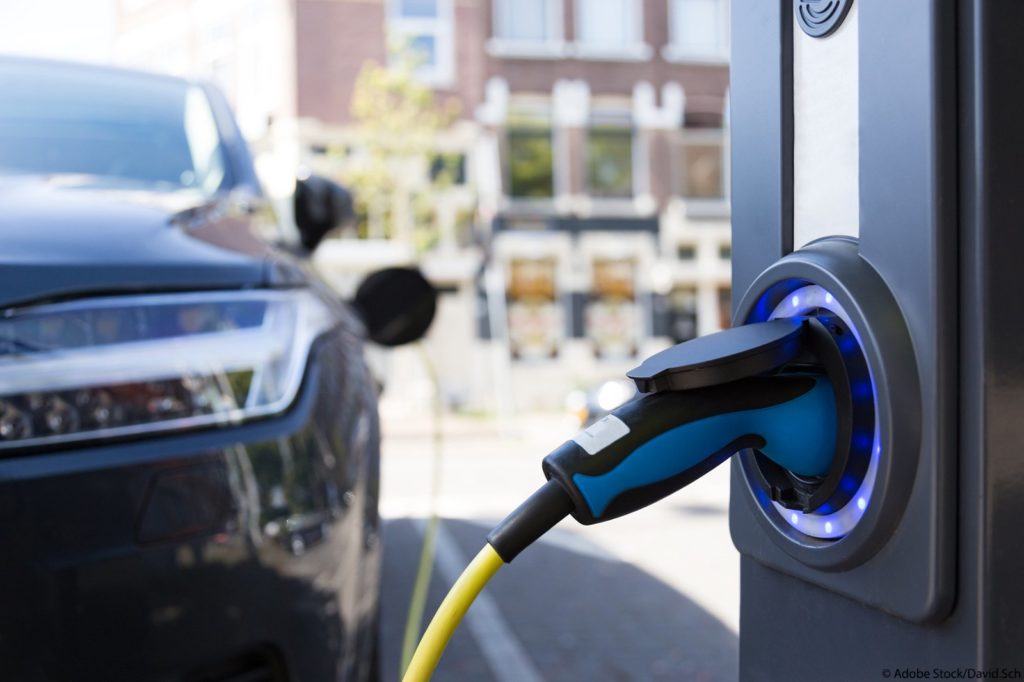
The European Parliament has approved a landmark law that effectively bans the sale of new petrol and diesel cars in the European Union from 2035.
The law aims to accelerate the transition to electric vehicles and help combat climate change. The new rules will require car manufacturers to achieve a 100% reduction in CO2 emissions from new cars sold by 2035, which would make it impossible to sell new fossil fuel-powered vehicles in the 27-country bloc.
The law also mandates a 55% reduction in CO2 emissions for new cars sold from 2030, compared to 2021 levels, which is much higher than the existing target of 37.5%.
According to Jan Huitema, the parliament’s lead negotiator on the rules, electric vehicles’ operating costs are already lower than those of vehicles with internal combustion engines. It is crucial to make affordable electric vehicles available to consumers.
The deal was agreed upon by EU countries and lawmakers in October 2021. However, the rules still need to receive formal approval before they can take effect, with the final approval expected in March 2022.
The law also mandates a 100% reduction in CO2 emissions for new vans by 2035 and a 50% reduction by 2030 compared to 2021 levels.
Many carmakers in Europe have announced investments in electrification. Volkswagen (VOWG_p.DE) CEO Thomas Schaefer announced last year that from 2033, the brand will only produce electric cars in Europe.
Despite the widespread support, the EU law faced opposition from some industry and countries when it was proposed in July 2021.
As a result, the final deal includes some flexibilities, such as small carmakers producing less than 10,000 vehicles per year being able to negotiate weaker targets until 2036.
The car CO2 law is part of a broader package of tougher EU climate policies designed to help the bloc achieve its targets to reduce greenhouse gas emissions this decade.

Impact of the New Law
The new law’s main objective is to limit the use of fossil fuels and promote clean energy, which is expected to have a significant impact on the automotive industry.
The ban on petrol and diesel cars will drive the growth of electric vehicles and encourage the development of the necessary charging infrastructure.
The automotive industry, which accounts for about 15% of the EU’s total greenhouse gas emissions, will need to adapt to the new regulations.
Car manufacturers are expected to increase investments in electric vehicles and related technologies, such as batteries and charging infrastructure.
Some experts believe that the new law may accelerate the decline of traditional car manufacturers and the rise of new players in the market.
For example, companies like Tesla, which have been focused on electric vehicle production, are expected to benefit from the new regulations.
Benefits of the New Law
The transition from fossil fuel-powered vehicles to electric vehicles is a significant step towards reducing greenhouse gas emissions. The new law’s benefits include the following:Reduction in Greenhouse Gas Emissions: The transportation sector is one of the largest emitters of greenhouse gases, and the new law aims to reduce these emissions significantly. According to the European Environment Agency, the transport sector accounted for around 27% of the EU's total greenhouse gas emissions in 2019. Positive Impact on Air Quality: The shift to electric vehicles will improve air quality in urban areas, reducing air pollution and its associated health risks. Cost Savings: Electric vehicles' operating costs are lower than those of fossil fuel-powered vehicles, and the new law will encourage carmakers to produce more affordable electric vehicles, which will save consumers money in the long run. Economic Growth: The transition to electric vehicles will lead to the growth of new industries, such as battery production and charging infrastructure, which will create jobs and boost economic growth.
Carmakers’ Response
Many carmakers in Europe have already started investing in electrification, and some have welcomed the new law. For example, Volkswagen’s CEO, Thomas Schaefer, announced last year that the brand would only produce electric cars in Europe from 2033.
Other carmakers, such as BMW and Mercedes-Benz, have also pledged to produce more electric vehicles. BMW plans to have electric vehicles make up 50% of its global sales by 2030, while Mercedes-Benz aims to have electric vehicles make up 50% of its sales by 2025.
However, some carmakers and industry groups have criticized the new law, arguing that the targets are too aggressive and will hurt their ability to compete with non-EU carmakers.
Impact on Consumers
The new law’s impact on consumers is likely to be mixed. The availability of electric vehicles is expected to increase significantly, making it easier for consumers to switch to cleaner modes of transportation.
The decrease in the cost of electric vehicles due to increased production is also expected to make them more affordable.
However, the new law’s implementation may also result in a reduction in the availability of petrol and diesel cars, which may cause their prices to increase. This could make it more difficult for consumers who cannot afford electric vehicles to purchase new cars.
The new law is also expected to increase the demand for charging infrastructure, which could lead to a rise in the cost of electricity. However, the cost of operating an electric vehicle is expected to be lower than that of a traditional vehicle in the long run, primarily due to lower fuel costs.
The new law represents a significant step towards reducing the use of fossil fuels and promoting clean energy.
















